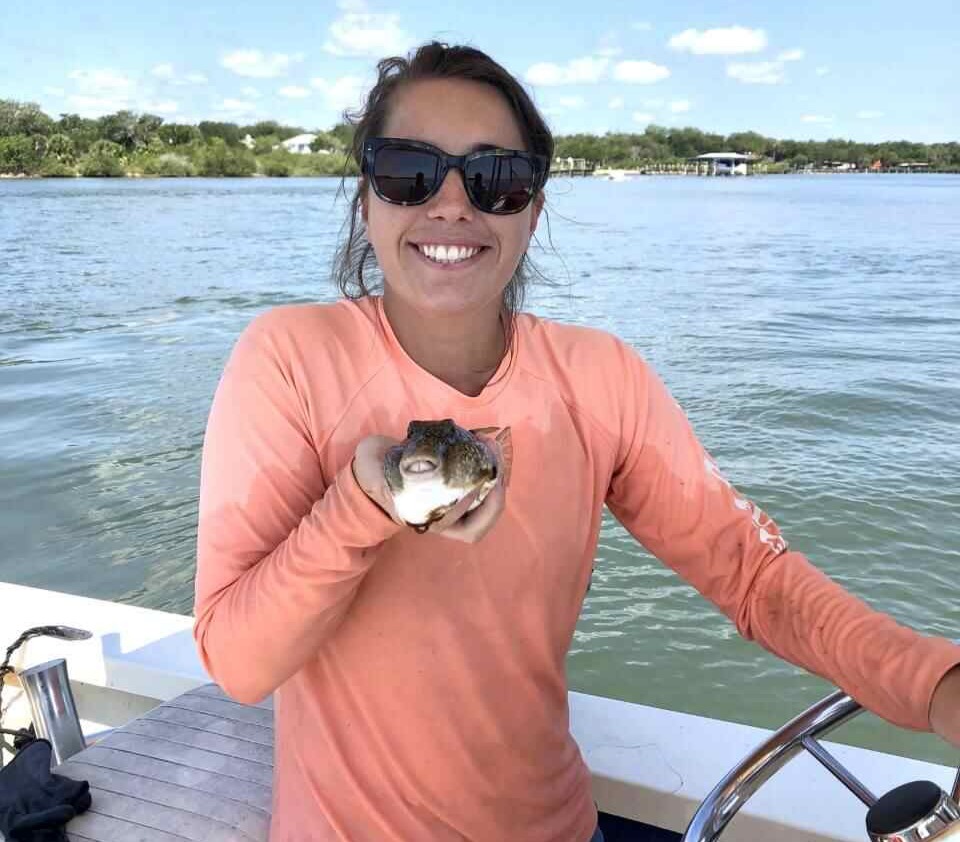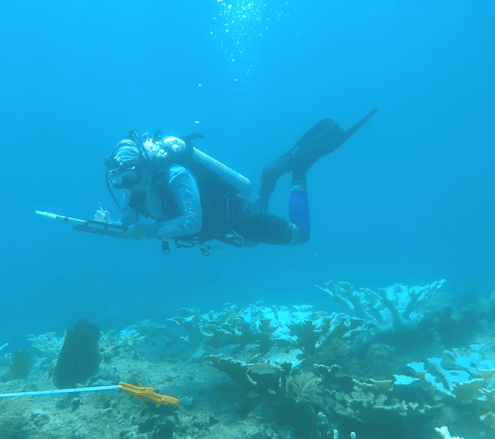Congratulations to Dakota Lewis, recipient of the 2025 Guy Harvey Fellowship! With this support, she’ll be diving deeper into how environmental changes affect fish populations in Florida Bay and predicting how they’ll respond to our changing climate.
“What I love about using fish as a study system is that they can move around,” said Lewis, a fourth-year doctoral candidate at the University of Florida’s School of Natural Resources and the Environment, advised by CCS Interim Director Andrew Altieri, Ph.D. “Unlike organisms that stay in one place, fish can relocate in response to algal blooms or heat stress events. Their ability to link different ecosystems, and patches within an ecosystem, is fascinating to me.”

Many fish species begin their lives in the seagrass and mangrove habitats of Florida Bay before migrating to coral reefs as they mature. Lewis is studying how fish link Florida Bay to the Florida Keys Reef Tract, and how their communities respond to various disturbances. These disturbances include both negative events, like heat waves, and positive ones, like habitat restoration. They also encompass short-term stressors, such as heat events, and long-term changes like climate change. While some species thrive in these shifting conditions, others struggle. By identifying the “winners” and “losers,” Lewis can pinpoint the most vulnerable species and help shape targeted conservation efforts.
“What impresses me about Dakota is her fearlessness in tackling any challenge by systematically breaking it down into individual objectives and then following through with a plan that addresses each of those objectives,” said Altieri, assistant professor in the Department of Environmental Engineering Sciences. “She is taking a deep dive into the underlying science to address big conservation and restoration challenges across multiple ecosystem types.”
The Guy Harvey Fellowship provides Lewis with critical support, including networking opportunities and more resources for her research. After the extreme heat stress event of 2023, she found it necessary to conduct additional summer sampling that had not been part of her original plan. Funded by the fellowship, this sampling has become another case study of heat stress impacts.

Lewis is grateful for the invaluable support provided by the fellowship, noting its impact on her research and career.
“The Guy Harvey Fellowship does an amazing job of elevating your work and providing opportunities to communicate your research,” said Lewis. “Between the networking and their Florida-focused mission, they go above and beyond in creating connections.”
After graduation, Lewis hopes to lead her own research lab, where she can continue studying fish community dynamics and ecosystem disturbances, and support students.
“I love mentoring the next generation of scientists,” said Lewis. “Our oceans provide essential ecosystem services and are crucial to the health of our planet. It will always be important to research, conserve and protect them.”
—
By Megan Sam
